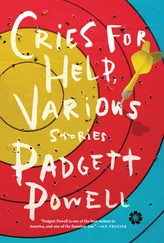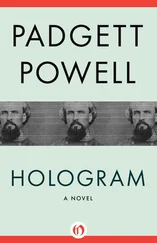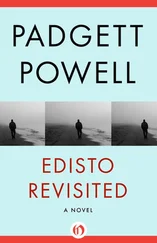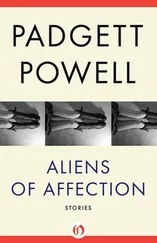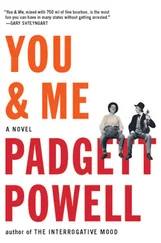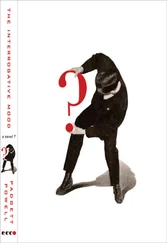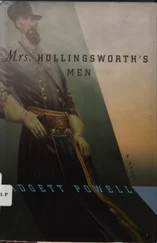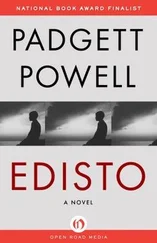He approached his house with caution. Seeing no one, he entered. The house was wide open and well lit. It looked to have been robbed. Drawers and closets were open, some of his wife’s dresses were on the bed, others hanging askew on their hangers half out of the closet. He checked immediately beneath his pillow for his pistol, a German officer’s Luger which he had purchased from a man at a flea market who had restored the finish expertly and filled the barrel with lead. His gun was there. So, for a heist, they had not been cleaned out. The scum had missed the real treasure.
In the kitchen he expected to find the pasta water on and, by extension, his wife, but she was not there. There was a note on the kitchen table. He looked under the kitchen sink to see if the bastards had found his shoeshine kit. They had not. It was safe. The little kiwi birds on the brush handles looked at him serenely, as if to say, We held our ground.
He wanted to get the pasta going but couldn’t decide on what type. He stopped just before salting the water, sat down at the table absently eating rock salt, and looked at the note. It was, apparently, from his wife. The salt was very salty, he noticed. He decided to secure the doors and windows against a return of the scavengers and sit in the dark waiting for them. He had seen the American detective Mannix and perhaps Jack Nicholson in Chinatown do this. They couldn’t tell where you were, but you could see them by the streetlights outside. What was dangerous in this case was that they would not be able to see his Luger. If he lit a candle, perhaps they could see the gun, and maybe just enough of him, like Marlon Brando in Apocalypse Now, that he would look terribly menacing and slender. Also, he could read his wife’s note. It was beginning to interest him.
By the light of the candle, his wife’s note, weighted down attractively by his Luger diagonally across it, was a pretty thing. It was note-sized, a handsome cut stationery, not a hastily torn-off scrap of something larger. His wife’s hand was neat, clear, strong for a woman. She had written, apparently, if this was her writing — he thought it was — that she was leaving, that she had found another man, and that he, Mario, didn’t know beans about large size. Mario shook his head: it was just like her. She was always carrying on about large size. She was the one who didn’t know beans about large size. A boyhood friend of his had been called Hannibal in Gymnasium, “because he comes over the mountain with an elephant between his legs.” But Mario had been called Scipio, “who surrounded Hannibal.” That was large size. “She not to know no bean about no large size,” Mario said aloud in the dark, pointing the Luger at the neat note. “She needs a hole small-size in her brainpan small-size.
His English was at its best, he felt, when he was stressed by something, and he liked to exercise it in non-conversational modes like this. The feeling it gave him was that of writing poetry. With English, he might have been Petrarch. He had heard that a very similar liberation had visited the writer Joseph Conrad.
He ate some more salt and thought further of the assassin. Was he this alleged lover? The carrier of large size? He was not the burglar. The burglar would not have been looking in at the mess he had himself made, unless he was looking to see if he had missed something. But what could you tell you had missed from outside when you had missed it inside? That was fantasy. What if the man had not been a taxi assassin or a thief but a voyeur, looking to get a peek at him and his wife having their frequent relationships?
This was of paramount concern to Mario. The sanctity of their marriage would have been sullied by interloper’s eyes. Holy images would have been bootlegged by a common criminal into the street, perhaps for the amusement of the pervert’s colleagues in scum. He could see a gang of purse thieves in Naples sitting around about three hundred purses talking about his large size and his delirious wife. The delicate sculpture of their fond embrace — joined as artfully as marble, her legs perhaps thrashing over his clenched back — would be dislocated from its hallowed pediment and carried like spoils into the mean secular minds of the equivalent of marauding Gauls. They were the same people who whapped the genitals and noses off all the sculpture of Italy. He had seen sculpted infants mutilated by these people who had looked into his house.
Mario pulled the drapes and went to bed. It was dangerous to let his imagination go. Besides, he had an early fare, a Frenchman with a travel-guide company who wanted to see Livorno, all of it. It was a flat day rate.
He went to sleep wondering if there was a subtle way of frisking a man for a wire. He could simply say, Regolazione nuova! and feel him up. There were two problems with this. One, the Frenchman might be — he had heard so many were — homosexual. A man such as Mario could never be too careful in this regard. Two, a wire is hard to feel, certainly nothing like his Luger, an honest weapon. He might miss the wire, relax, even get comfortable with the garrote expert, and, while talking about, say, Jerry Lewis movies with the killer … a knobby, hot chain through his esophagus with two little jerks, left, right —no, he put it all from his mind. He could not afford to let his imagination do irrational things. He needed his sleep. It was a good thing, really, his wife was not present to pester him all night. He would be in no shape to defend himself.
When he picked up his Frenchman the next morning, he marveled at the accuracy of rana, the pejorative applied to the French, he had always thought, with no basis except in fantasy. Now he saw, instead, that frog was no fantasy, no pejorative even. The man attempting to wedge himself into the cab was jowled, top-heavy, and looking at him through eyeglasses that so magnified his eyes — in fact, his whole upper face — that Mario, looking into the man’s pupils, which were the size of roasted chestnuts, thought he saw things in them. It was crazy, but he thought he saw a yo-yo in the frog’s left eye. It was something round and moving around on a string, that much was for sure.
The Frenchman packed himself in finally and pushed his heavy, green-tinted glasses up onto his nose, which adjustment made his eyes even larger. It was like looking into windows at an aquarium. Mario saw, deep in the black pools, what he thought were the two little white sphincters of the optic nerve junctions.
“What are you looking at?” the Frenchman asked.
“Can you see me, masseur?”
“Too well,” the Frenchman said.
Mario was relieved to hear the Frenchman could see. Taking a tourist, much less a travel writer, who could not see around all day to see things was not his idea of fun. “Masseur, excuse me if I appear unkept. I was up most night without sleep.”
“I see. Your manners are ruined by restlessness. You are all movement even at night.”
The words all movement startled Mario. He did not know why.
The Frenchman whipped out a small notebook and wrote something down. On the cover of the notebook Mario saw a small inflated doughy figure of a man he recognized — the tiny, bulbous Michelin man. All movement! All movement and fantasy! From the psalm of the modern Italian in modern Italy who belied the legends. It was fantastic! The man might have even been the writer of the Scripture! Mario intended to ask but was now absorbed by how much the Frenchman resembled not only a frog but the Michelin logo itself, the pneumatic, happy clown that sold tires for the largest tire manufacturer in the world. How had Michelin gotten a writer who just so evoked the company image? Had they based the logo on this man? Had they other men in the employ who looked like the clown? The possibilities were many. It was all fantastic. Suddenly he could see beneath the soft, froggy exterior only his concern of the night before — a piano wire cinched into the corpulence with the apparent innocence of just another ring of fat, of which there might be hundreds. It would be useless to frisk the Frenchman — he would never even detect a gun in all that meat.
Читать дальше

